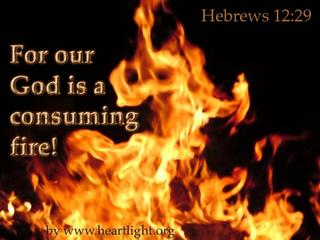

Last night I met Walt Garrison. My reward for volunteering to punch tickets at the Texas Sports Hall of Fame induction reception in Waco March 4, was the occasional glimpse of or even handshake with one of my childhood icons—Lee Roy Jordan, Bob Lilly, Rayfield Wright, Fred Akers, men who defined my youthful weekends with gridiron exploits of the Southwest Conference and the immortal-to-me Dallas Cowboys. Every boy has his favorite athletes he mimics in his own backyard or driveway and last night I came face-to-face with one of mine.
I don’t believe in the living contacting the dead, but I’m convinced somehow, someway, my departed dad knows I met Walt. You see, for me and my father, Walt Garrison was not merely the quintessential football player—not glamorous but quietly consistent, stronger than the Green Bay Packers’ line, the “go-to-guy” who powered always forward for the tough yards. No razzle-dazzle crazy legs, Walt moved north and south on the field, never east and west. You may have stopped him occasionally, but always while he was moving forward. However, what really captivated me was that on top of his obvious athleticism in helmet and pads, he was a real cowboy—the bronc bustin’, bull ridin’, calf ropin’ kind. When he wasn’t wearing silver helmet surrounded by big blue stars, he could be seen in Silver Belly Stetson. When jersey number ‘32’ and cleats were tucked away in his Dallas locker room, Walt wore Wranglers and boots. Cowboy running back and real life cowboy—the stuff boyhood dreams are made of. If you had asked me at ten years of age to define manhood, I would have replied, “John Wayne and Walt Garrison.”
But the years have blurred the image. Perhaps American culture is to blame or perhaps as Jimmy Buffett eloquently expressed from Margaritaville, “it’s my own dang fault.” Either way, it appears I’m not alone in the dilemma. Many men seem on a restless search to understand and embrace the essence of masculinity. What exactly does it mean to be a man? Solomon wrote in Proverbs 20:5, “Knowing what is right is like deep water in the heart; a wise person draws from the well within” (The Message). But how far down must one go to learn the answer to that question? John Eldredge, author of Wild At Heart: Discovering the Secret of a Man’s Soul, writes: “Deep in a man’s heart are some fundamental questions that simply cannot be answered at the kitchen table. Who am I? What am I made of? What am I destined for?” (p. 5). Again he writes, “I am simply searching, as many men (and hopeful women) are, for an authentic masculinity” (p. 13). So, how does Eldredge answer his own provocative questions? He states that authentic manhood consists of three things: a battle to fight, an adventure to live, and a beauty to rescue. He does a good job exploring these facets of the manly riddle and appeals to Scripture’s portrayal of God for much of what he purports. I highly recommend his work to every seeking male.
Having said that, I am concerned that following Eldredge’s line of thought might lead one to still another version of understanding one’s self according to one’s culture and the opposite gender. In other words, defining man by man’s context—a real man avoids wearing certain colors (pink) and eating certain foods (quiche) while driving a certain type of truck and endangering life and limb while rock climbing on weekends. Perhaps I am being a bit unfair in my assessment, but I am convinced that any valid understanding of masculinity must stand apart from cultural context. What it means to be a man for me today in Texas should be the same as what it means to be a man in Kenya or Kosovo, for that matter. Where does one find such objectivity? I am convinced the only adequate response is to look to the God-man Jesus Christ. If truly Jesus of Nazareth was God wrapped in sinew and muscle, and if Hebrews is right in saying that he fully identified with us in that condition (Hebrews 4:14-16), then my best understanding of masculinity will come from a careful study of the God-man Jesus. As I do so, I learn that manhood has much more to do with character, courage, sacrifice, and clarity of purpose than it does with height, weight, hobbies or occupation. It certainly isn’t defined in relation to that which is feminine. That which makes a man a man is who he is in private before God apart from any other relationship. Jesus was not the man he was because of who Peter was or the woman Mary proved to be. He was who he was because of how he lived in relationship with the Father and how his character and heart mirrored that of the Father. I celebrate gender differences and certainly concede the enormous significance of cultural context; however, I encourage us to probe still deeper to understand the essence of a man. And for me, that journey pushes me to the God-man, Jesus of Nazareth.
Last night I met Walt Garrison (and I’m still really glad for that), but no longer do I look to blue stars or Stetsons to locate the boundaries of manhood. Instead, I pursue the deep water inside my own heart and look for the Father’s reflection in it. I am husband to my wife, father to my daughters, son to my mother, Papa to my grandchildren, but I am a man only to the extent that I look like, speak like, think like, live like, love like, and, ultimately, die like Jesus Christ.

.jpg)






